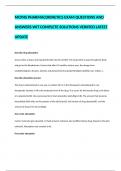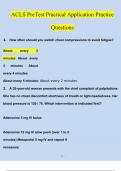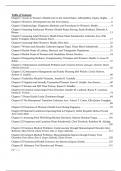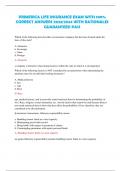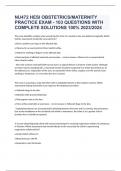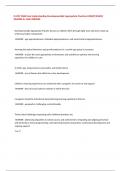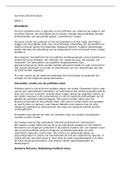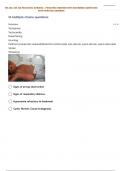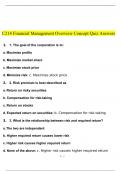Exam (elaborations)
MCPHS PHARMACOKINETICS EXAM QUESTIONS AND ANSWERS WIT COMPLETE SOLUTIONS VERIFIED LATEST UPDATE
- Course
- Institution
MCPHS PHARMACOKINETICS EXAM QUESTIONS AND ANSWERS WIT COMPLETE SOLUTIONS VERIFIED LATEST UPDATE Describe drug absorption Occurs when a drug is not injected directly into the vein(IV). The drug needs to pass through the body and get to the bloodstream. Factors that affect GI motility, surface ar...
[Show more]
